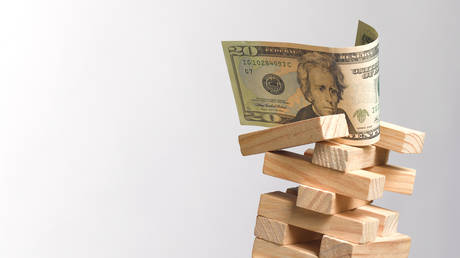
Dollar is ‘dangerous currency’, former IMF director tells RT
The greenback and Washington-based fund are used as weapons against nations out of favor with the West, Brazilian economist Paulo Batista argues
The US dollar has become a dangerous currency, a former Brazilian representative at the International Monetary Fund (IMF), Paulo Nogueira Batista Jr., told RT in an interview at the outlet’s studio on Friday.
The economist highlighted that trust in the greenback as the global reserve currency has been steadily declining as more and more nations seek alternatives in what has become a major de-dollarization push.
“The dollar is a dangerous currency, let’s put it this way, see what happened to the Russian reserves,” Batista said, referring to the fact that some $300 billion worth of Moscow’s sovereign assets held in Western jurisdictions were frozen.
The former IMF executive director emphasized that the US “is the main enemy of the dollar” as it has been increasingly weaponizing its national currency, thus forcing an increasing number of nations to “seek alternatives to the Western financial system.”
Batista admitted that the greenback will remain “a very important currency,” but stressed that the use of the dollar as a weapon against countries seen as hostile to the West inevitably reduces confidence in it.
READ MORE: BRICS developing own payment framework – Putin
Speaking about the methods of coercion employed against “nations that are seen as hostile to the West and their interest,” Batista highlighted the role of the IMF, which, he believes does not function as a multilateral institution but rather as “as a political instrument largely of the West and the US.”
He pointed out that “Ukraine had received immense amounts of loans with no financial program and no solid economic program.” Meanwhile, nations whose policies are not in line with the West do not get access to the fund, citing Serbia as an example.

